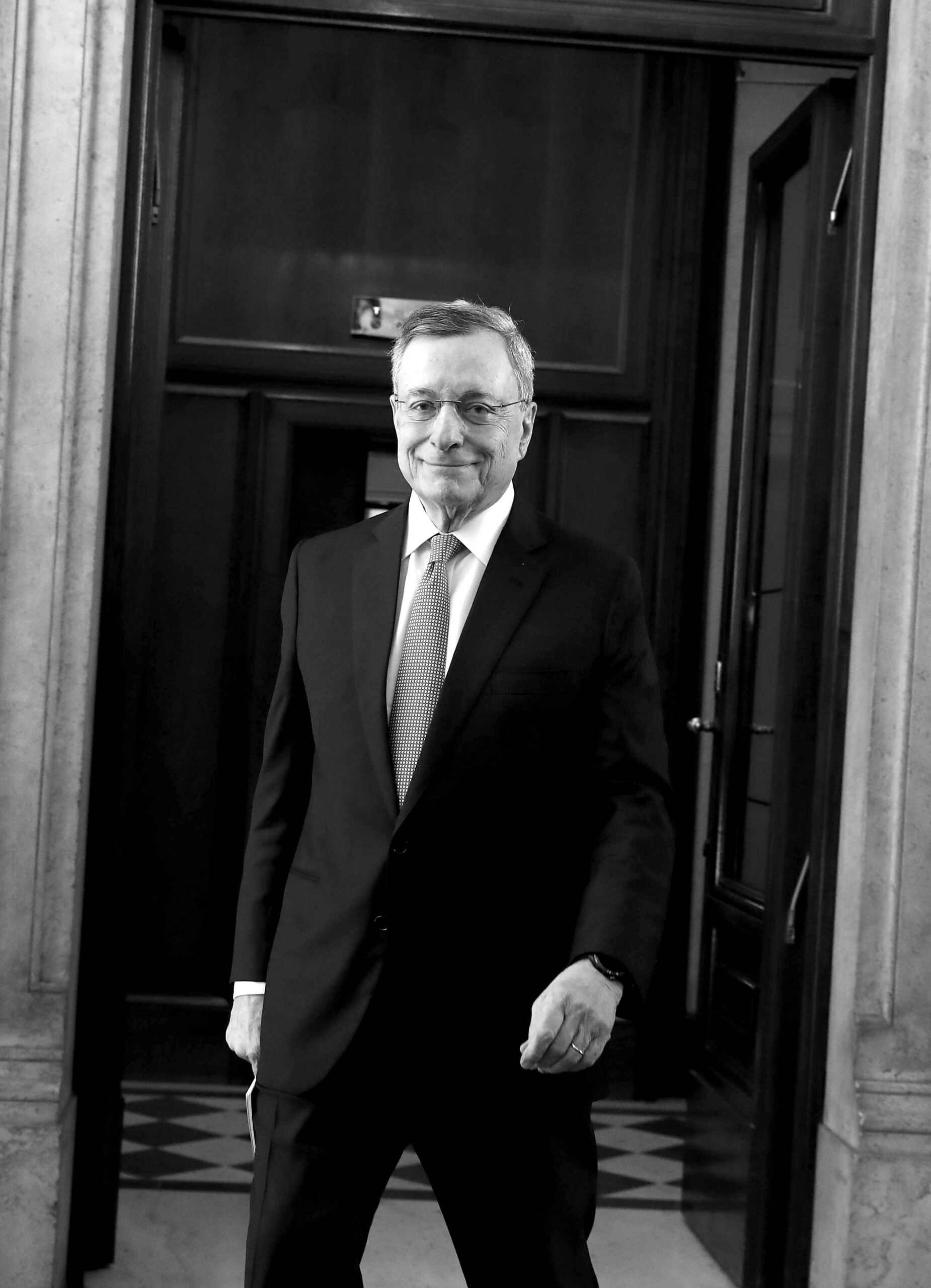Mario Draghi: The Pragmatic Federalism Doctrine
Mario Draghi
President of the Italian Council of Ministers (2021-2022), President of the European Central Bank (2011-2019)24/10/2025

Mario Draghi: The Pragmatic Federalism Doctrine

Mario Draghi
President of the Italian Council of Ministers (2021-2022), President of the European Central Bank (2011-2019)24/10/2025

 Voir tous les articles
Voir tous les articles
Mario Draghi: The Pragmatic Federalism Doctrine
My public service in Italy started with the negotiations for the Maastricht Treaty 1 . Since then, building Europe has been a central mission of my career—both as a national policymaker, as Head of the Italian Treasury and then as Prime Minister, and as a European one, at the helm of the ECB.
But today, the outlook for Europe is as difficult as I can remember. Almost every principle on which the Union was founded is under strain.
We built our prosperity on openness and multilateralism—yet now face protectionism and unilateral action.
We believed diplomacy could be the bedrock of our security—yet now see a return of hard military power.
We pledged leadership in climate responsibility—yet now watch others retreat while we shoulder growing costs.
The world around us has fundamentally changed—and Europe struggles to respond.
This raises a critical question: why can’t we change?
We are often told that Europe is forged in crisis. But how acute must a crisis become for our leaders to put their minds together and find the political will to act?
After the great financial crisis and the sovereign debt crisis, the ECB—also thanks to its European mandate—had evolved into a more federal institution, and the banking union was launched.
But since then, our challenges have grown more and more complex—and they now demand common action by Member States.
They concern areas such as defence, energy security and frontier technologies that require continental scale and shared investment.
And in some of these fields—especially defence and foreign policy—a deeper degree of democratic legitimacy is needed.
Since many years we have not changed our governance. Today, we are a European confederation that simply cannot cope with such demands.
It leaves responsibilities at the national level that can no longer be delivered effectively there. And even if we wished to transfer more powers to Europe, this model does not offer us the democratic legitimacy to do so.
This is not only because of the legal constraints of the EU Treaties. The deeper constraint is that, facing this new world, we have not built a shared mandate—endorsed by citizens—for what we, as Europeans, truly intend to do together.
Beyond declarations, and out of necessity, the future of Europe must be a journey towards federalism.
But, however desirable a true federation would be, it would require political conditions that do not exist today. And the challenges we face are too urgent to wait for them to emerge.
A new, pragmatic federalism is therefore the only viable path forward.
This is a federalism that is issue-based, flexible and able to act outside the slowest mechanisms of EU decision-making.
It would be built by coalitions of the willing around shared strategic interests—recognising that Europe’s diverse strengths do not require every country to move at the same pace.
Imagine countries with strong tech sectors agreeing on a common regime that enables their firms to scale rapidly.
Nations with advanced defence industries pooling R&D and funding joint procurement.
Industrial leaders co-investing in critical sectors such as semiconductors, or in grid infrastructure that lowers energy costs.
This pragmatic federalism would allow those with higher ambitions to act with the speed, scale and intensity of other global powers. And just as importantly, it could help renew the democratic momentum of Europe itself.
Because opting in would require national governments to secure democratic support for specific shared goals, it would become a bottom-up construction of common purpose—not a top-down imposition.
All those who want to join could do so—while those who seek to block progress would no longer be able to hold others back.
In short, it offers a confident vision of Europe—and one that citizens can believe in.
A Europe where young people see their future.
A Europe that refuses to be trampled on.
A Europe that acts not out of fear of decline, but out of pride in what it can still achieve.
We must offer this vision if Europe is to renew itself. And I am confident that we can.
Notes
citer l'article
Mario Draghi, Mario Draghi: The Pragmatic Federalism Doctrine, Oct 2025,




